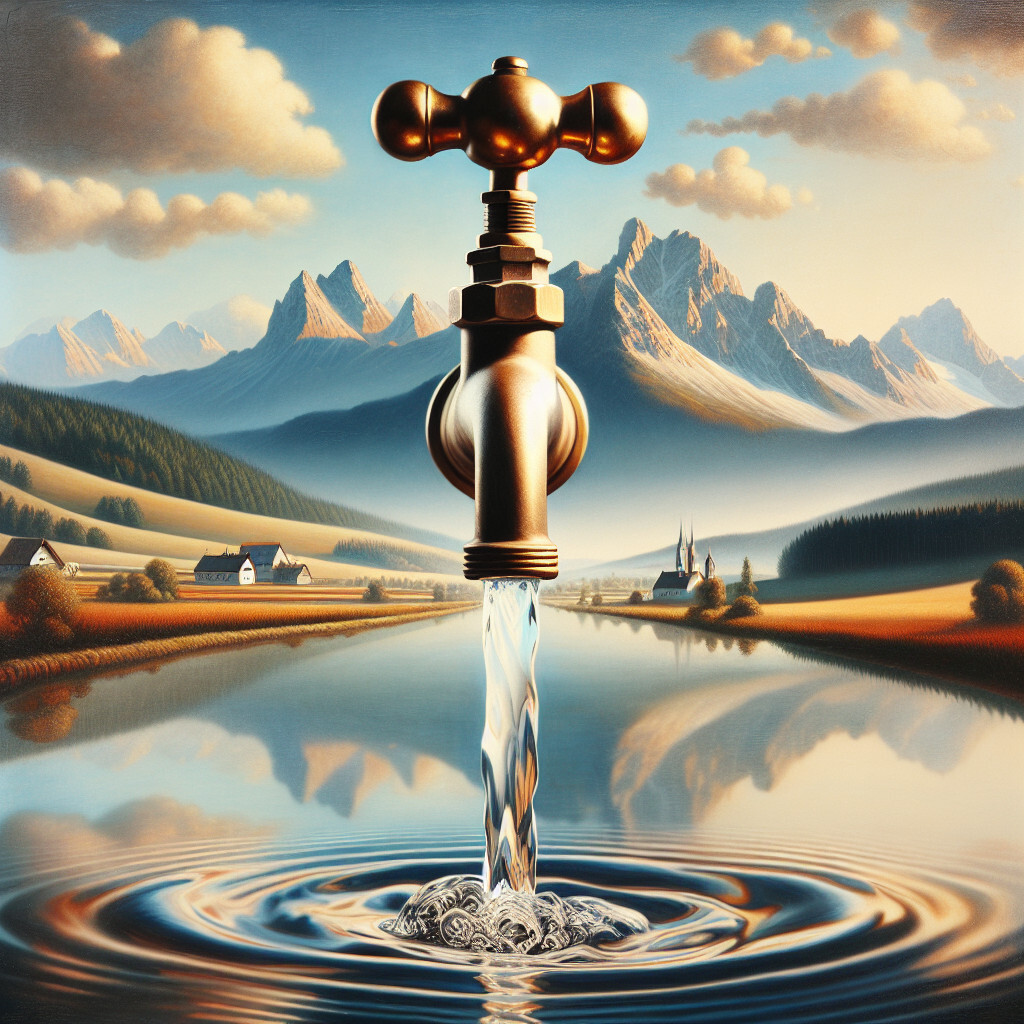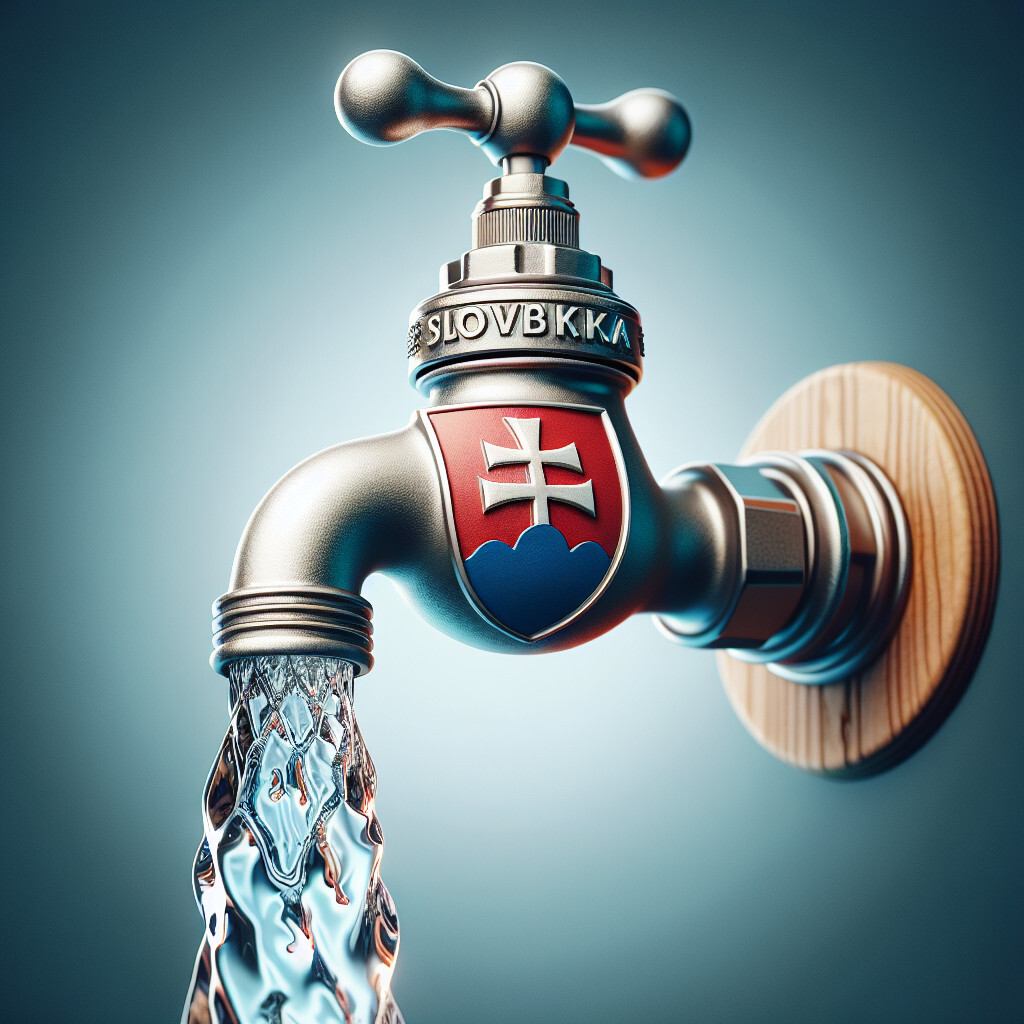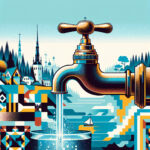-
Table of Contents
“Slovakia’s Tap Water: Pristine, Pure, and Perfectly Drinkable!”
Introduction

The tap water in Slovakia is generally safe and of high quality, suitable for drinking and cooking. The country’s water supply system is well-regulated and undergoes regular testing to ensure it meets the stringent European Union standards for water quality. However, the taste and hardness of the water can vary depending on the region due to different mineral compositions. In some rural areas, people may prefer to drink bottled water due to the presence of old pipes.
Understanding the Quality of Tap Water in Slovakia
In the heart of Europe, nestled between Austria, Hungary, Ukraine, Poland, and the Czech Republic, lies the beautiful country of Slovakia. Known for its rich history, stunning landscapes, and vibrant culture, Slovakia is a destination that captivates many. However, one aspect of this country that often goes unnoticed is the quality of its tap water.
Slovakia, like many European countries, has a high standard of living, and this extends to its water supply. The country’s tap water is generally safe to drink, thanks to stringent regulations and regular testing. The Slovakian government, through the Public Health Authority, ensures that the water supply is regularly monitored for any potential contaminants. This includes testing for bacteria, viruses, and harmful chemicals that could pose a risk to public health.
The water in Slovakia is sourced from both surface water, such as rivers and reservoirs, and groundwater. The country’s water treatment facilities use advanced filtration and disinfection processes to ensure that the water is clean and safe to drink. These processes remove any potential contaminants and kill any harmful microorganisms that may be present in the water.
However, it’s important to note that while the tap water in Slovakia is generally safe to drink, the taste and quality can vary depending on the region. This is due to differences in the local water sources and treatment processes. For example, in some areas, the water may have a slightly different taste due to the presence of certain minerals. This is not necessarily a sign of poor quality, but rather a characteristic of the local water supply.
In some cases, individuals may prefer to use a water filter or to boil the water before drinking. This can help to improve the taste and remove any residual particles that may be present. However, this is generally not necessary for health reasons, as the tap water in Slovakia meets the standards set by the World Health Organization for safe drinking water.
Despite the high quality of the tap water, many Slovaks prefer to drink bottled water. This is largely a matter of personal preference, rather than a reflection of the quality of the tap water. In fact, some studies have shown that the quality of bottled water is not necessarily better than that of tap water, and it can be significantly more expensive.
In conclusion, the tap water in Slovakia is generally safe to drink, thanks to rigorous testing and treatment processes. However, the taste and quality can vary depending on the region, and some individuals may prefer to use a water filter or to drink bottled water. As with any destination, it’s always a good idea to do some research and to ask locals for their advice when it comes to drinking water. But rest assured, in Slovakia, you can confidently quench your thirst with a glass of tap water.
The Impact of Environmental Factors on Slovakia’s Tap Water
Slovakia, a landlocked country in Central Europe, is known for its rich history, stunning landscapes, and diverse culture. However, one aspect that often goes unnoticed is the quality of its tap water. The quality of tap water in Slovakia is influenced by a variety of environmental factors, which have a significant impact on its safety and taste.
Slovakia’s tap water is primarily sourced from groundwater, which is naturally filtered through layers of soil and rock. This process removes many impurities, but it also exposes the water to various minerals and substances present in the ground. The composition of the soil and rock in different regions of Slovakia can therefore significantly affect the quality of the tap water. For instance, in areas with limestone or chalk bedrock, the water may have a higher concentration of calcium and magnesium, making it ‘hard’. On the other hand, in regions with granite or gneiss bedrock, the water is likely to be ‘soft’ due to lower mineral content.
Another crucial environmental factor is the level of pollution. Despite Slovakia’s efforts to protect its natural resources, the country still faces challenges with air and water pollution. Industrial activities, agricultural runoff, and improper waste disposal can contaminate the groundwater with harmful substances such as heavy metals, nitrates, and microplastics. These pollutants can pose serious health risks if they are not adequately removed during water treatment.
Climate change also plays a role in the quality of Slovakia’s tap water. Rising temperatures can increase the rate of evaporation, reducing the amount of available groundwater. Moreover, extreme weather events such as floods and droughts can disrupt water supply systems and increase the risk of contamination. For instance, heavy rainfall can wash pollutants into water sources, while prolonged dry periods can concentrate pollutants in the remaining water.
Despite these challenges, Slovakia has made significant strides in improving its water quality. The country has invested heavily in modernizing its water treatment facilities and infrastructure, ensuring that the tap water meets the stringent safety standards set by the European Union. These measures include advanced filtration and disinfection processes that effectively remove most contaminants. Furthermore, regular testing is conducted to monitor the quality of the tap water and promptly address any issues.
However, it’s important to note that the taste and odor of the tap water can still vary depending on the local conditions. Some people may find the water to have a slight metallic or earthy taste due to the minerals and organic matter present. While this does not necessarily indicate a problem with the water’s safety, it can be off-putting for those used to different water profiles.
In conclusion, the quality of tap water in Slovakia is influenced by a range of environmental factors, including the geological composition of the land, pollution levels, and climate change. While the country has made significant efforts to ensure the safety of its tap water, these factors can still affect its taste and odor. Therefore, it’s always a good idea for residents and visitors to use a water filter or drink bottled water if they are concerned about the quality of the tap water.
Health Implications of Drinking Tap Water in Slovakia
In Slovakia, the quality of tap water is a topic of considerable interest, particularly in relation to its potential health implications. The country’s water supply is primarily sourced from groundwater, which is naturally filtered and generally considered safe for consumption. However, the quality of tap water can vary significantly across different regions, influenced by factors such as local geological conditions, pollution levels, and the efficiency of water treatment processes.
The Slovak Republic, like many European countries, adheres to stringent water quality standards set by the European Union. These standards stipulate the maximum allowable concentrations of various contaminants, including bacteria, viruses, heavy metals, and certain chemicals. Regular testing is conducted to ensure compliance with these standards, and any violations can result in hefty fines or other penalties.
Despite these safeguards, concerns about the safety of Slovakia’s tap water persist. One of the primary issues is the presence of nitrates, which can seep into the water supply from agricultural runoff. High levels of nitrates in drinking water can pose serious health risks, particularly for infants and pregnant women. Long-term exposure can lead to a condition known as methemoglobinemia, which impairs the blood’s ability to carry oxygen.
Another concern is the presence of trihalomethanes (THMs), byproducts of the chlorination process used to disinfect water. Some studies have linked long-term exposure to THMs with an increased risk of certain types of cancer, although the evidence is not conclusive. The levels of THMs in Slovakia’s tap water are generally within the limits set by the EU, but there are occasional exceedances in some areas.
In addition to these chemical contaminants, microbial contamination is also a potential issue. Although Slovakia’s water treatment processes are generally effective at eliminating harmful bacteria and viruses, there is always a risk of contamination, particularly in rural areas where the infrastructure may be less reliable.
Despite these potential risks, it’s important to note that the tap water in Slovakia is generally safe to drink. The vast majority of the population has access to clean, potable water, and serious health issues related to water quality are relatively rare. However, individuals with compromised immune systems, as well as pregnant women and young children, may wish to take extra precautions, such as using a water filter or drinking bottled water.
In conclusion, while the tap water in Slovakia is subject to rigorous testing and generally meets EU standards, there are some potential health risks associated with its consumption. These risks are generally low, but they underscore the importance of ongoing efforts to monitor and improve water quality. For those concerned about the safety of their drinking water, there are a number of steps that can be taken to reduce risk, including the use of water filters and the consumption of bottled water. Ultimately, the decision to drink tap water in Slovakia is a personal one, influenced by individual health considerations and personal comfort levels.
Comparative Analysis: Tap Water in Slovakia vs. Other European Countries
In the realm of water quality, Slovakia holds a unique position among European countries. The tap water in Slovakia is generally considered safe to drink, a testament to the country’s commitment to maintaining high standards of public health. However, the quality of tap water can vary significantly across the country, influenced by factors such as the source of the water and the condition of the local water infrastructure. This article aims to provide a comparative analysis of the tap water in Slovakia and other European countries.
Slovakia, located in Central Europe, is blessed with an abundance of natural resources, including a rich supply of fresh water from its rivers and underground springs. The country’s public water supply is primarily sourced from these natural reserves, which are carefully managed to ensure sustainability. The water undergoes rigorous treatment processes to remove any potential contaminants before it is distributed to households and businesses. Regular testing is conducted to monitor the water quality and ensure it meets the stringent safety standards set by the European Union.
In comparison to other European countries, Slovakia’s tap water quality is generally on par. For instance, countries like Germany, France, and the Netherlands are known for their high-quality tap water, which is safe to drink straight from the tap. These countries, like Slovakia, have robust water treatment systems and strict regulations in place to ensure the safety of their public water supply.
However, it’s worth noting that not all European countries can boast the same level of water quality. In some Eastern European countries, such as Bulgaria and Romania, the tap water is often not safe to drink due to issues with water treatment and infrastructure. In these countries, bottled water is the preferred choice for drinking.
Despite the overall safety of Slovakia’s tap water, there are still areas where improvements can be made. Some regions, particularly rural areas, have reported issues with the taste and smell of the tap water. This is often due to the presence of certain minerals or chemicals in the water, which while not harmful, can affect the sensory qualities of the water. In these cases, residents often choose to use water filters or drink bottled water instead.
Furthermore, while Slovakia’s water infrastructure is generally well-maintained, there are areas where it is aging and in need of upgrades. This can lead to issues with water pressure and occasional disruptions in the water supply. However, the government has been proactive in addressing these issues, investing in infrastructure improvements and modernization projects.
In conclusion, the tap water in Slovakia is generally safe to drink and compares favorably to the tap water in many other European countries. However, the quality can vary depending on the region and the condition of the local water infrastructure. As such, it’s always a good idea to check with local authorities or residents if you’re unsure about the tap water quality in a specific area. Despite some challenges, Slovakia continues to make strides in ensuring the safety and quality of its public water supply, demonstrating its commitment to public health and environmental sustainability.
Q&A
1. Question: Is tap water in Slovakia safe to drink?
Answer: Yes, the tap water in Slovakia is generally safe to drink.
2. Question: How is the quality of tap water in Slovakia?
Answer: The quality of tap water in Slovakia is high, as it meets the standards set by the European Union.
3. Question: Does the tap water in Slovakia taste good?
Answer: The taste of tap water can vary depending on the region in Slovakia, but generally, it is considered to have a neutral taste.
4. Question: Is bottled water more popular than tap water in Slovakia?
Answer: While tap water is safe to drink, many locals and tourists still prefer bottled water due to personal preference or taste.
Conclusion
The tap water in Slovakia is generally safe and clean to drink, meeting high standards of water quality. However, the taste and hardness can vary depending on the region.






